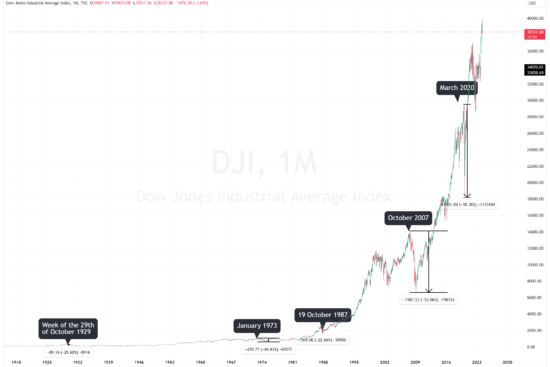Stock
Investing in stocks involves buying shares of companies to gain ownership and earn returns through price appreciation and dividends. Learn about the stock market, different types of stocks, and strategies for successful stock investing. Explore how to analyze stocks, understand market trends, and manage your stock portfolio effectively.
Learn about the stock market, types of stocks, and investing strategies to achieve your financial objectives.
Learn how different types of banks operate, their services, and their role in supporting economic stability and growth.
Frequently Asked Questions
A stock is a type of security that signifies ownership in a company. When you purchase a stock, you buy a share of the company’s equity, meaning you own a portion of that company. Stocks are bought and sold on stock exchanges, and their value can fluctuate based on the company's performance and market conditions.
Stocks represent ownership in a company. When a company needs capital, it can issue shares to the public through an Initial Public Offering (IPO). Investors purchase these shares, giving the company capital to grow or expand. In return, investors become shareholders and have the potential to earn dividends and benefit from stock price appreciation. Company performance, economic conditions, and market sentiment influence stock prices.
There are two main types of stocks:
- Common Stock: Common stockholders have voting rights in corporate decisions and may
receive dividends. The value of common stock can fluctuate widely, and holders are last in line
to receive assets if the company goes bankrupt. - Preferred Stock: Preferred stockholders generally do not have voting rights but have a higher
claim on assets and dividends than common stockholders. Dividends on preferred stocks are
often fixed and paid before dividends on common stocks.
To buy stocks, follow these steps:
- Open a Brokerage Account: Choose a brokerage firm and open an account. Many online brokers
offer easy access to stock trading. - Research Stocks: Conduct research to identify stocks that fit your investment goals and risk
tolerance. Consider factors such as company performance, industry trends, and financial health. - Place an Order: Once you've chosen a stock, place an order through your brokerage account.
You can place different orders, such as market orders (buy or sell at the current market price) or
limit orders (buy or sell at a specified price).
Dividends are payments made by a company to its shareholders from its profits. They are typically paid quarterly and can provide a steady income stream for investors. Not all companies pay dividends; some prefer to reinvest earnings into the business for growth.
Stock market volatility refers to the variation in stock prices over time. High volatility means that stock prices fluctuate significantly, leading to greater investment risk and potential rewards. Factors contributing to volatility include economic events, company news, and overall market sentiment.
Key Terms
Ownership interest in a company, represented by shares of stock. Equity holders have a claim on the company’s assets and earnings.
The process through which a private company becomes publicly traded by offering its shares to the public for the first time.
Shares of well-established, financially sound companies with a history of reliable performance and strong market position. Blue-chip stocks are often considered lower-risk investments.
A period characterized by rising stock prices and investor confidence. Bull markets often occur during economic expansion and growth phases.
A period characterized by declining stock prices and reduced investor confidence. Bear markets typically occur during economic downturns or recessions.
The total value of a company's outstanding shares of stock is calculated by multiplying the share price by the total number of shares. Market cap is used to classify companies as large-cap, mid-cap, or small-cap.
A valuation ratio is calculated by dividing the current share price by the company's earnings per share (EPS). The P/E ratio helps investors assess whether a stock is overvalued or undervalued compared to its earnings.
An action taken by a company to divide its existing shares into multiple new shares, increasing the total number of shares while maintaining the overall value. Stock splits are often done to make shares more affordable and increase liquidity.
Understanding stocks and their dynamics is essential for making informed investment decisions. By researching and staying updated on market trends, you can effectively manage your stock investments and work towards your financial goals.
Related Post
-
MFS
- 30 Aug 2024
Yahoo Finance Stock Market Live
In 2024, the financial world will continue to be shaped by rapid technological advancements, economic shifts, and evolving investor behavior.…
-
David Harper
- 27 Aug 2024
Biggest Stock Market Crashes in Our History.
Making and keeping a spending plan is the one monetary propensities can take on. A very much created spending plan…
-
MFS
- 12 Aug 2024
Analysts Reboot Amazon Stock Price Targets After Earnings
Amazon, the global e-commerce and cloud computing giant, has once again captured the attention of Wall Street, but this time,…
-
MFS
- 12 Aug 2024
Time to Buy the Recent Dip in Microsoft or Amazon Stock?
As 2024 unfolds, investors closely monitor the stock market, with particular attention to tech giants Microsoft and Amazon. Both companies,…
-
MFS
- 12 Aug 2024
What’s Going on with the Stock Market in 2024?
The stock market in 2024 has been marked by significant volatility and uncertainty, leaving investors and analysts scrambling to understand…
-
MFS
- 12 Aug 2024
What Time Does the Stock Market Open? A Global Perspective for 2024
The opening times of stock markets are crucial for traders, investors, and financial professionals worldwide. Understanding when markets open and…






